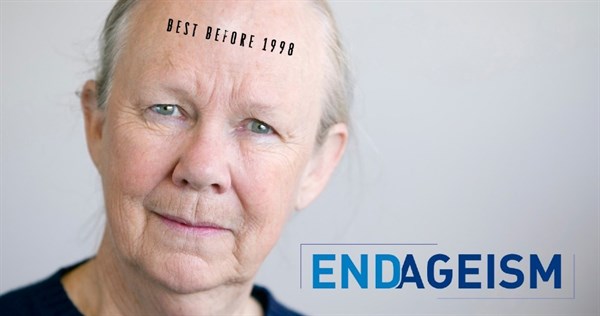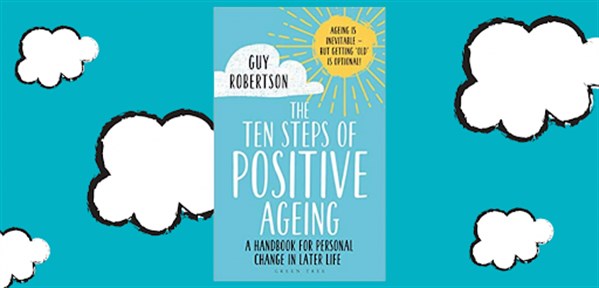Positive Ageing – an approach to happiness in later life
23 Jul 2020 | Guy Robertson

Most people nowadays recognise that there is a connection
between mind and body. For example, being stressed is commonly
recognised as being bad for our physical health. What most
people don't recognise however is that the mind's influence can be
more extensive than that.
There is now a strong evidence base indicating that our beliefs
about ourselves, other people and the world can make a huge
difference to our physical wellbeing, and even how long we live.
Ground-breaking research revealed the shocking reality
that holding negative beliefs about ageing shortens life by an
average of 7.5 years compared to those who hold more positive
attitudes!
It appears that this happens when people 'internalise' negative
ageist stereotypes which are prevalent in society. And the impact
is not confined to lifespan - it affects the incidence of illness,
the rate and extent of recovery from illness, mental wellbeing,
physical impairment, and ultimately wellbeing and happiness. And
Levy isn't the only researcher to uncover these effects; there is a
large and growing evidence base.
The big question is whether there is a way through this. It
turns out that there is much from the field of humanistic
psychology which can help. Becoming aware of, and then challenging,
our unconscious bias against ageing is the gateway into addressing
this unhelpful phenomenon. We patently can't prevent or delay the
ageing process; but we don't have to inhabit an identity which
conforms to ageist stereotypes of 'being old'.

We need to resist such stereotypes because they do two
things. Firstly, they tend to impose a sort of
'self-censorship' which limits our aspirations and curtails some of
the activities or pleasures that we would otherwise experience. In
other words they foster self-limiting beliefs, which cause us to
narrow rather than broaden our options.
Secondly, ideas around 'being old' actively trigger and
perpetuate a range of negative self fulfilling prophecies.
If you believe that you are going to feel worse as you age,
then you can almost guarantee that you will experience that
negative outcome. It is so important to constantly guard against
negative self-fulfilling prophecies.
Drawing from the disciplines of Cognitive Behavioural Therapy,
Mindfulness and Positive Psychology there is now an evidence based
programme to maximise wellbeing and happiness in later life. The
Ten Steps of Positive Ageing is a handbook for personal change in
later life and has been designed to open up the possibility of a
radically different approach to ageing. The traditional approach
tends to be passive, fatalistic and rather downbeat. This new
positive approach is very different - it advocates action and
agency.

The actual Ten Steps can be summarised as follows:-
- Step 1: Reflecting on death and our own
mortality can enliven and bring more joy and satisfaction
to our lives.
- Step 2: Doing a reality check on the negative ideas and
images about ageing can help us get a more balanced
picture.
- Step 3: Ageism is no laughing matter and
negative stereotypes and ageist attitudes can cause us real harm.
We need to protect ourselves from this.
- Step 4: Relationships with other people are so
important as we age. We need to maintain and improve our
friendships and even develop new connections.
- Step 5: Mindfulness is a particularly helpful
tool for improving our later lives.
- Step 6: Developing a broadly based sense of positive
wellbeing is an important counterweight to the widespread
negativity and fears around ageing.
- Step 7: Looking back on our lives can help us
extract valuable learning from our past experiences which can help
us deal with future challenges.
- Step 8: Clarifying what gives us meaning and a sense of
purpose in our lives is critical to maintaining our
motivation and wellbeing.
- Step 9: Developing an explicit vision for how
we want our lives to be and what we want to achieve can help us
make the best of our precious later years.
- Step 10: Building our resilience helps us
survive (and perhaps even thrive from) the many challenges and
transitions as we age
This is an outline of the steps; what is then required is to use
the evidence based tools and self-reflective questionnaires which
make The Ten Steps of Positive Ageing an actual
workbook for personal change in later life.
Just as we had to learn to grow up, so we have to learn to grow
old. If we don 't put some thought and attention into preparing for
these years, then, at best, we could very easily feel short-changed
or disappointed; at worst, we could dramatically increase the risks
of illness, disability, unhappiness and early death. However, if we
take some time to look closely at the steps for positive ageing,
then we are much more likely to age well and reap the benefits.

About The Author
Guy Robertson is author of The Ten Stops of Positive Ageing: a handbook for
personal change in later life. Published by Bloomsbury
Publishing Ltd